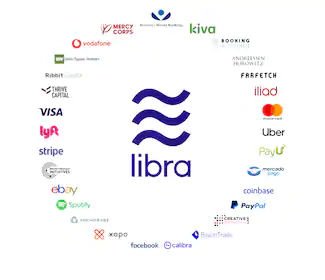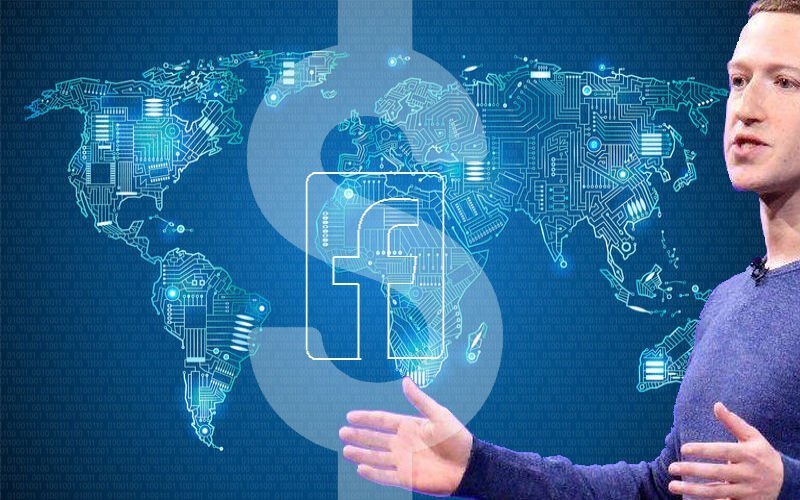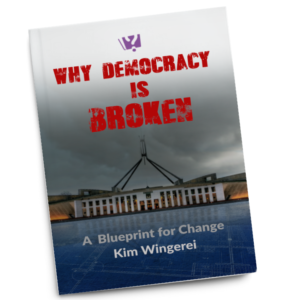Listen to “Libra – Facebook’s Pitch for World Domination” on Spreaker.
Click play for Podcast.
Facebook’s Libra launch does not just have the potential to propel Facebook into a major player in consumer payments and credit services, it may well be the most profound change to world’s financial systems since the abolishment of the Bretton Woods Agreement in 1971.
About five years ago – while still running a small online business – I needed some extra working capital, and I needed it quickly to take advantage of a deal from a supplier. A day later, I had the money I needed through a loan from PayPal, with flexible terms that suited my cash flow. The interest was higher than a bank, but I knew full well that even the bank I had traded with for ten years would have taken weeks to process an application, required collateral and with terms that suited them, not my business.
PayPal was started 20 years ago as a way to send money between friends securely on the internet. PayPal bypassed the banks, secured the trust of users by delivering on its promise and protecting its users against fraud in ways the banks did not. It has since continued to grow to become one of the major payment portals in the world; providing credit was a logical extension of its services to online retailers and consumers.
PayPal is one of many such non-bank companies which provide credit to small business and direct to consumers – including Latitude Finance, Flexigroup and recently listed Prospa to name a few of the Australian so called Fintech companies. And although it remains a small market, the growth is explosive, non-bank business lending reaching $1.6 billion in 2017 – 88% growth from the previous year according to altfi.com and KPMG. There is little reason to believe the growth in the sector is slowing as the major banks are focused elsewhere, stuck in a bloated business model that will eventually see them marginalised as providers of retail financial services.
It is the same story globally, spectacularly illustrated by Facebook announcing Libra – a border-less digital currency. It may well be the biggest disruptor to international finance since the abolishment of the Bretton Woods Agreement in 1971 – removing gold as the guarantor of currencies. Libra is designed as a facilitator of payment and then becoming a credit provider, just like PayPal have. But the potential is on a scale even the mercurial PayPal co-founder Elon Musk probably didn’t envision.
PayPal is, however, one of the founding members of the Libra Association (libra.org) which Facebook has initiated to garner broad support and ensure at least the perception of an arms-length relationship to its social media services (Facebook, Whatsapp and Instagram). Other members are credit providers such as MasterCard, Visa and third world micro-lender Kiva, as well as ecommerce services giants Booking.com, eBay, Spotify, Lyft and Uber. Vodafone and French mobile carrier Iliad (who operates in 35 countries), are also founding members.
 There are no bank members, but a few venture capital firms, including Joshua Kushner’s Thrive Capital. Joshua is the brother of Jared, better known as Donald Trump’s son-in-law.
There are no bank members, but a few venture capital firms, including Joshua Kushner’s Thrive Capital. Joshua is the brother of Jared, better known as Donald Trump’s son-in-law.
The plan is to expand the Libra Association from the current 28 members to 100, each contributing U$ 10 million for “the cause” – a mere trifle for those seeking world domination.
The Libra Association is based in neutral Switzerland, the home of friendly bankers who specialise in keeping financial transactions shielded from preying eyes and pesky regulators.
Libra won’t actually be available for a year or so, but when it launches it will offer a “digital wallet” for users to transfer “real” money into it and then pay for products and services within the Facebook ecosystem.
The “Libra White Paper” published at launch by libra.org outlining Libra’s plan is instructive in conveying how credit provision is where the money is. It is also the aim of the “Libra network to become permissionless” – a eupheism for the service to be anonymously available to anyone, regardless of origin, financial savvy, motives or jurisdiction.
The best known permissionless networks are those created by Bitcoin operators and the Libra announcements have been credited with the recent surge in Bitcoin prices. But whereas Bitcoin is a purely speculative monetary instrument with limited utility, and its value based solely on the premise there is someone else out there who will pay more for it, Libra will be underwritten by real world money. The Libra White Paper describes ”a collection of low-volatility assets, such as bank deposits and short-term government securities in currencies from stable and reputable central banks”. This is to ensure Libra users will be able to convert their deposits back into “real” world money, and not be subject to the volatility of other crypto-currencies.
But – and there’s is the rub – why should they? With its enormous user base Libra has the potential to turn Facebook, Instagram and Whatsapp users into a captive global audience to use Libra money to buy and sell, subscribe and gamble, beg and borrow.
This may not seem like such a big deal to users in countries with well developed banking and credit infrastructures and a relatively limited cash economy. But in countries like Indonesia where only half of the adult population have bank accounts, but pretty much everyone uses Whatsapp, the opportunity is enormous.
Facebook makes no secret of where their growth opportunities are, not just for Libra but for everything it does. Facebook has probably reached its peak in the US and Canada with an increase of a mere 2 million monthly users (to 243 million, or 66% of the population) from 2018 to 2019. It’s a similar story in Europe, but in the Asia Pacific Facebook added 108 million monthly users in the last 12 months, to 981 million. Still “just” 23% of the most populous (and fastest growing) region in the world. In Africa (where bank accounts are even less common than in Indonesia) and South America, Facebook added 63 million users in the last 12 months.
According to the White Paper the mission is “to enable a simple global currency and financial infrastructure that empowers billions of people”. No wonder banking regulators are voicing their concerns and bankers everywhere are wondering how to get a piece of what may become a very big pie.



